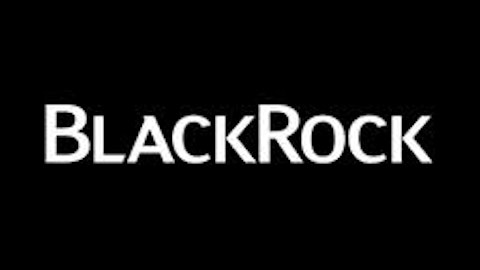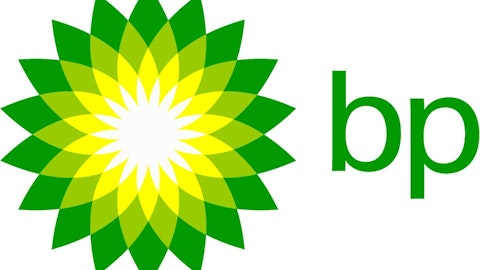
Several companies already profit from the surge in hydraulic fracturing and natural gas resources, but Cheniere Energy, Inc. (NYSEAMEX:LNG) is billions of dollars, months and years ahead in the race to export natural gas.
The state of natural gas in the U.S.
The advances in hydraulic fracturing (also known as fracking) in recent years have led to an increase in natural-gas production. Over the past few years, warmer-than-usual weather meant many Americans didn’t use as much heat over the winter months, demanding less natural gas than usual. This decrease in use coupled with the heightened production resulted in a natural gas glut in the U.S.
Natural gas companies such as Cheniere Energy, Inc. (NYSEAMEX:LNG), ConocoPhillips (NYSE:COP), Dominion Resources, Inc. (NYSE:D), Exxon Mobil Corporation (NYSE:XOM), and others want to turn the stockpile of natural gas into liquified natural gas (LNG) and export it overseas and sell it at a more competitive world-market price. Not everyone agrees with this idea, though.
Many companies in other industries, such as Dow Chemical or Huntsman, see the exports as a negative thing. Right now, natural-gas prices are very low — which saves the opponents of LNG exports a great deal of money. In short, if LNG is exported and sold at a more competitive price, it will cost those companies more to buy it; hence, they’re considered opposition.
The parties in favor of exporting argue that the higher gas prices will mean higher profits, which will benefit the U.S. economy. But before these companies can begin to export, there are a few hurdles to overcome. First, they need permits from the federal government. Second, they need export facilities. This is where and why Cheniere Energy, Inc. (NYSEAMEX:LNG) has a lead on the competition.
Projections show that LNG will begin to be exported to Europe and Asia by 2020, while a turnaround in oil trade appears likely in 2030, according to William Colton, Exxon Mobil Corporation (NYSE:XOM)’s vice president for corporate strategic planning.
Get to know Cheniere
Just five short years ago, companies, including Cheniere Energy, Inc. (NYSEAMEX:LNG), expected to have to import natural gas amid a shortage in the U.S. (hydraulic fracturing in shale gas reserves have since taken off). Back then, Cheniere built facilities in Sabine Pass, LA. to import LNG. Those facilities were idle until when Cheniere began to convert them into export facilities. Cheniere’s stake in this facility is known as Cheniere Energy Partners LP (NYSEMKT:CQP), its own separate stock.
By 2016, a processing plant will be ready to ship out 500 million cubic feet of gas a day. Cheniere Energy, Inc. (NYSEAMEX:LNG) expects to build five more identical systems by 2019. The $12 billion investment could export about 4% of America’s current natural-gas output.
With the facility problem solved, getting a permit from the U.S. Department of Energy is a very different and more complicated hurdle. Opposition to exporting comes with some deep-pocketed support, particularly from chemical companies.
Legislation such as the Keep American Natural Gas Here Act and the North American Natural Gas Security and Consumer Protection Act would prevent gas drilled on federal lands to be exported or bar regulatory approval of export facilities for more than a decade.
However, Cheniere Energy Partners LP (NYSEMKT:CQP)’ Sabine Pass facility already received DOE-approval two years ago. It’s the only facility cleared to export to countries that don’t have a Free Trade Agreement. This non-FTA approval is critical, as only South Korea imports very much LNG within the FTA. The ability to sell and reach other countries is what Cheniere has that nobody else has, and most likely won’t have, for several years to come.
In recent weeks, the Ambassador from India, Ms. Nirupama Rao, wrote an op-ed for the Wall Street Journal where she expressed
India is now the world’s fifth-largest energy consumer. It imports 75% of its energy (especially oil-and- petroleum products) today and expects to import 90% over the next decade… A boost in LNG exports would have many positive effects on both the U.S. and Indian economies. For the U.S. it would help create thousands of jobs and an expanded revenue stream for the federal government. For India, it would provide a steady, reliable supply of clean energy that will help reduce our crude oil imports from the Middle East and provide reliable energy to a greater share of our population. For both countries, which are committed to environmental sustainability, increasing the use and transport of LNG globally will help put into greater use one of the cleanest energy sources in the world.
Get to know Dominion Resources
Dominion Resources also invested billions of dollars into importing LNG and has existing import facilities. Dominion is one of the nation’s largest producers and transporters of energy. The company operates one of the largest U.S. natural-gas storage systems with 947 billion cubic feet of storage capacity.
On April 1, Dominion submitted a 12,000-page application to federal regulators to build a $3.4 billion plant in southern Maryland to export LNG. The company has deals with energy companies in Japan and India that would purchase the gas. Dominion is third on the list of 21 exporters awaiting Energy Department-approval. Two privately owned companies, Freeport LNG and Lake Charles Exports, are ahead of it.
Shares of Cheniere Energy, Inc. (NYSEAMEX:LNG) jumped more than 20% when the Sabine Pass terminal was approved in April 2012. Cheniere Energy now trades around $25 to $26, and Cheniere Energy Partners trades at a lower volume, but about the same price. If and when Dominion can begin to export, look for its stock to do the same!
Other companies to watch
The Golden Pass LNG Terminal sits near Sabine Pass, Texas, and is owned by Golden Pass LNG, a joint venture formed Qatar Petroleum (70%), Exxon Mobil Corporation (NYSE:XOM) (17.6%) and ConocoPhillips (NYSE:COP) (12.4%). The Golden Pass application is currently in 14th place awaiting Energy Department-approval. However, the project received approval in October 2012 to export domestic LNG to FTA countries.
Earlier this year, ExxonMobil, ConocoPhillips (NYSE:COP) and BP plc (ADR) (NYSE:BP) announced plans for a major LNG project to build a natural-gas pipeline in Alaska to export LNG to Asia. The project could cost as much as $65 billion. The Alaska-to-Asia natural gas pipeline will export natural gas from Alaska’s North Slope 800 miles to the coast. The Alaskan-export project would compete with more than a dozen proposed plants in the U.S. that hope to get federal approval to sell liquefied natural gas to Asia, where gas sells for several times the U.S. price.
ExxonMobil subsidiary ExxonMobil Chemical has not joined ranks with Dow or Huntsman in opposing LNG exports. The subsidiary carries a biased perspective with a stake in both outcomes. However, the president of ExxonMobil Chemical, Steven Pryor, said the following in a speech to the industry
There have been numerous independent studies, including for the Department of Energy, that showed that under all trading scenarios, the economic benefits to the country from LNG exports are significant and clearly outweighed any potential increases in domestic natural gas prices… Free trade is the life blood of the chemical industry. New industry investments in the Middle East, Asia and now North America will increase trade flows, benefiting producers and consumers worldwide… But with this opportunity comes obstacles. The prospects of growing exports often prompt calls for protectionism from competitors seeking to protect their domestic advantage. Protectionist pleas are often wrapped in pious appeals to nationalism, but the real agenda is to unlevel the playing field and stifle the competition. As an industry, we must vigorously oppose protectionist measures that limit access to global markets.
LNG export-approvals could change both the economy and many stocks. The companies poised to pop first are Cheniere Energy Partners LP (NYSEMKT:CQP), and Dominion, but don’t rule out other companies yet. ExxonMobil stands to benefit either way with LNG exports, regardless of its political views on free trade, making it another safe bet for the future.
The article 1 LNG Export Company to Know originally appeared on Fool.com and is written by Erin McBride.
Copyright © 1995 – 2013 The Motley Fool, LLC. All rights reserved. The Motley Fool has a disclosure policy.

